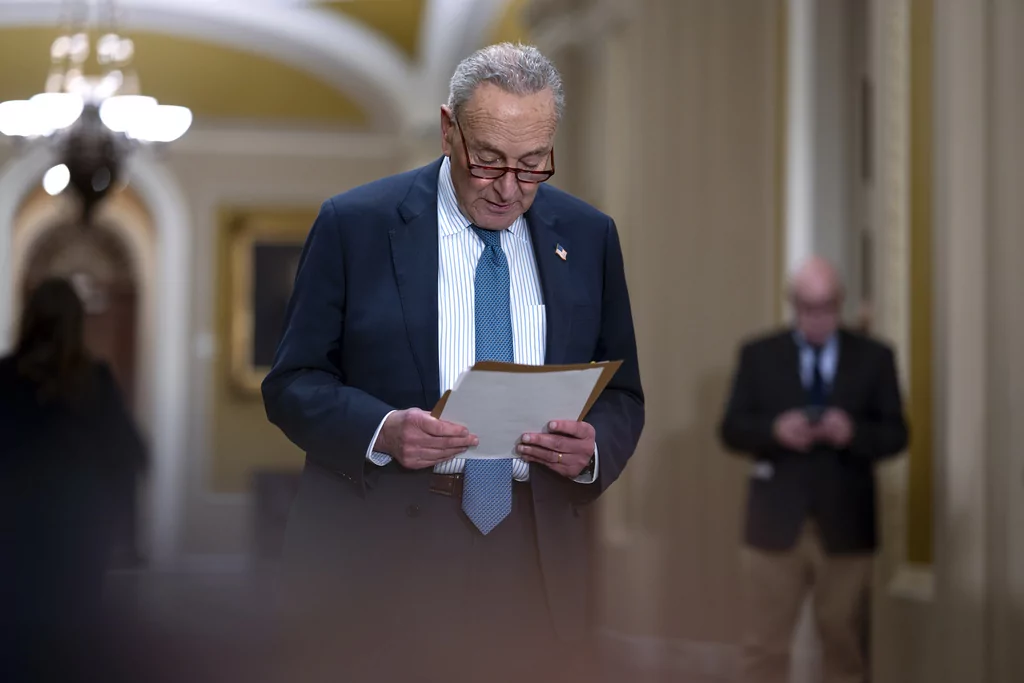

Congress passed a stopgap spending bill to extend government funding into early next year, sending the bill to President Joe Biden’s desk in time to avert a government shutdown late on Friday evening.
Government funding briefly lapsed at the stroke of midnight on Saturday, but the Office of Management and Budget said that its agencies would not shut down and normal operations could continue after it became clear the Senate was about to vote the package through. Less than an hour later, the Senate voted 85-11 to pass the package.
The House voted earlier on Friday 366-34 to advance the package, overcoming the two-thirds majority needed to clear the lower chamber. The legislation, which did not include President-elect Donald Trump’s demand to attach a debt limit increase, then headed to the Democratic-led Senate for consideration. The Senate, however, was not quite able to get the vote on the legislation done before midnight.
The latest funding package punts the funding deadline until March 14 and provides an additional $110.4 billion in disaster aid and economic assistance for farmers. It also includes an extension of programs under the annual Farm Bill until the end of September 2025, among other provisions.
The bill is similar to the first continuing resolution package that was rejected on Thursday, but it does not include the debt limit provision that was opposed by GOP deficit hawks and was largely responsible for the first failed vote.
The new measure was fast-tracked to the floor on Friday under suspension of rules, meaning it required a significant number of Democrats to pass the House. Despite threatening for days to withhold support on any spending package other than the original bipartisan agreement, 196 Democrats crossed party lines to help push the bill across the finish line. 34 Republicans voted against the legislation.
It’s not clear if a deal was made between House Speaker Mike Johnson (R-LA) and Minority Leader Hakeem Jeffries (D-NY) to secure the Democratic support needed. However, Jeffries did tell reporters heading into a closed-door meeting Friday evening that he had spoken with Johnson “multiple times” leading up to Friday’s vote.
Jeffries also struck a more amenable tone toward the latest iteration of the CR, saying, “What needed to come out of the bill has come out of the bill.”
Jeffries went on to say efforts from Trump and entrepreneur Elon Musk to include a debt limit increase at the “eleventh hour was not sustainable.”
Johnson told reporters after the legislation’s passage that he was in “constant contact” with both Trump and Musk throughout the negotiation process. Johnson called the passage of the continuing resolution a “necessary step to bridge the gap” heading into Trump’s second term:
“This is America First legislation because it allows us to be set up to deliver for the American people. In January, we will make a sea change in Washington. President Trump will return to D.C. and to the White House, and we will have Republican control the Senate and the House.”
Schumer called the legislation a victory in remarks needling Trump for the lack of a debt ceiling hike in the bill.
“I’m glad that the Republican leadership and that the Republican colleagues in the House didn’t — were able to tell Elon Musk he was wrong when it comes to the debt ceiling,” Schumer said, echoing Democratic taunts that Musk is really in charge of the incoming Trump White House.
Leaders of both parties in the House and Senate spent weeks negotiating the original bipartisan funding agreement that would extend government funding, approve disaster aid, and provide economic assistance to farmers. However, that package was scrapped less than 24 hours after it was finalized on Tuesday due to opposition from Trump and his allies, such as Musk.
After walking back on the initial funding bill, House Republican leaders put forward their own proposal on Thursday to keep the government open. That included a measure to suspend the debt ceiling for two years — a provision that caught many lawmakers off guard, especially deficit hawks in the House who are staunchly opposed to raising the debt limit.
CLICK HERE TO READ MORE FROM THE WASHINGTON EXAMINER
The bill then tanked in a 174-235 vote after nearly all Democrats and 38 Republicans opposed it. Republicans then agreed to remove the measure to increase the debt ceiling, a final-hour demand from President-elect Donald Trump, in order to win over some GOP holdouts. Instead, the speaker and rank-and-file members entered into a handshake agreement to enact spending cuts in exchange for a debt ceiling raise in Republicans’ first reconciliation package next year.
Hailey Bullis contributed to this report







